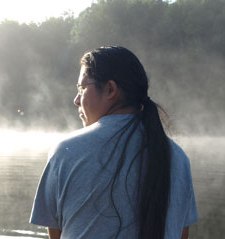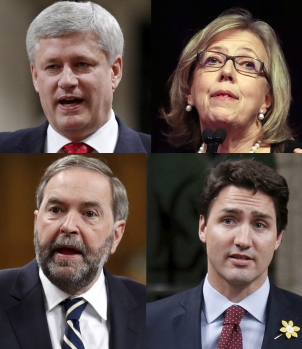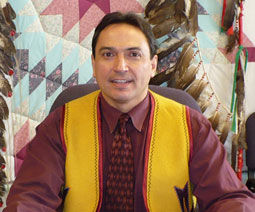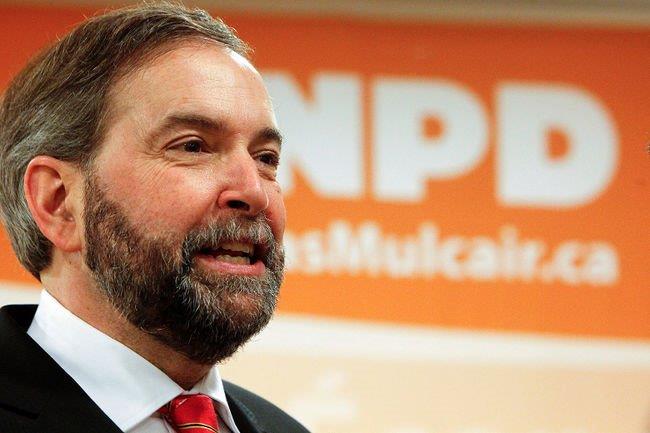by Xavier Katapaquit
Now that he is in power, the big question is just what will a majority Liberal government headed by Prime Minister Justin Trudeau really mean for First Nations across the country? The good news is that out of 18 Indigenous candidates the Liberals put forth, eight managed to win seats. The New Democratic Party (NDP) elected two Indigenous candidates and the Conservatives who had at one point four Indigenous members of parliament elected none this time around.
Assembly Of First Nations (AFN) National Chief Perry Bellegrade; Nishnawbe-Aski Nation (NAN) Grand Chief Alvin Fiddler and Muskegowuk Grand Chief Jonathon Solomon all have expressed a positive outlook on working with the new Liberal government. First Nation political organizations, tribal councils and communities right across the country are looking forward to having a better relationship with the government of Canada. Most have had to deal with budget and programming cuts while the Conservative government made life easier for the most wealthy in the country, provided an increase in support to big business and involving Canada in expensive wars in the Middle East that have resulted in death and destruction at a cost of millions of dollars.
The new Liberal government of Prime Minister Justin Trudeau has a lot to live up to when it comes to promises made to the Indigenous people of Canada. He has committed to an enquiry on missing and murdered Indigenous women across the country, fixing the problems causing boil water advisories in First Nations country wide, putting 2.6 billion dollars of new funds into education and creating a new era of trust in dealing with treaty rights and quality of life for Indigenous people nationally. First Nation leadership is also looking for substantial solutions regarding inadequate housing as well as addressing teen suicide.
The last time the Liberals held power in Canada, led by Prime Minster Paul Martin, the government of Canada and Indigenous, federal and provincial leaders signed on to the Kelowna Accord. The accord, signed in 2005, promised an investment of $5 billion in Indigenous communities and programs. The accord died when the Liberals were defeated in the January 2006 federal election and the Conservatives took power.
Under the Conservative government relations with First Nation leadership was strained. An AFN analysis determined that in recent years Aboriginal organizations have faced $60 million worth of cuts from the Conservative government. As of January 7th, 2015 it was found Inuit organizations were hardest hit with 71% of funding cuts between 2012 and 2015. First Nations organizations saw their overall funding, including core and project based funding, drop from $69 million to $24 million, or 65.5 % cut. Metis organizations suffered 39% in cuts. Non-status Indian organizations were cut 14% and women’s organizations were cut 7%.
First Nation leadership all across the country were assaulted by a government that wanted to silence their voices and take away their capacity to advocate for their people. In the 2011-2012 fiscal year, Ontario First Nation organizations received about $20 million in project and core funding. In the 2014-2015 year, the same funding was reduced to about $5 million,(76% cut). Two organizations in New Brunswick and Prince Edward Island were hit by 80% in cuts, while in Saskatchewan, the sole regional organization, the Federation of Saskatchewan Indian Nations faced 91% in cuts. In Manitoba, three regional First Nation organizations, Southern Chiefs, Manitoba Keewatinowi Okimankanak and Assembly of Manitoba Chiefs (AMC), were hit with 78% in cuts between 2012 and 2015.
In reaction to the Conservative governments negative impact on First Nations, the Idle No More movement sprung up. This movement was also created to fight the government’s Omnibus Bill C-45 which featured the removal of protections for forests and waterways. Bill C-45 overhauled the (Navigable Waters Protection Act (NWPA) of 1882, renaming it the Navigation Protection Act (NPA).
The NWPA had mandated an extensive approval and consultation process before construction of any kind could take place in or around any water which could in principle be navigated by any kind of floating craft. Under the new NPA, the approval process changed so that most of the waterways would no longer receive the same protection as in the past. This of course was a shocking development for First Nation people as many of these waterways were and are still are an important part of their cultural and traditional lives. First Nation leadership expects the Liberal government to fix this legislation so that the Aboriginal people and in fact all Canadians can be sure that our waterways are protected.
Another contentious bill C-51, the Anti-terrorism Act, was passed June 9, 2015. The bill provides for more power to security agencies and police while reducing the rights of citizens in general. One of the major concerns by rights advocates and First Nation leadership is that those who protest government policy or projects could be considered as terrorists. First Nation people across the country often protest controversial development on traditional lands and waterways. Although the Liberals supported this legislation they did so while promising to revisit it and amend it if elected. First Nation leadership will no doubt be looking for Prime Minister Trudeau to revisit this legislation. Prime Minister Trudeau has the mandate to get the country back on track and now all he has to do is get busy to make that happen.
For information about Xavier Kataquapit visit www.underthenorthernsky.com.







Be the first to comment on "Under the Northern Sky: Federal Election – What It Means For First Nations"